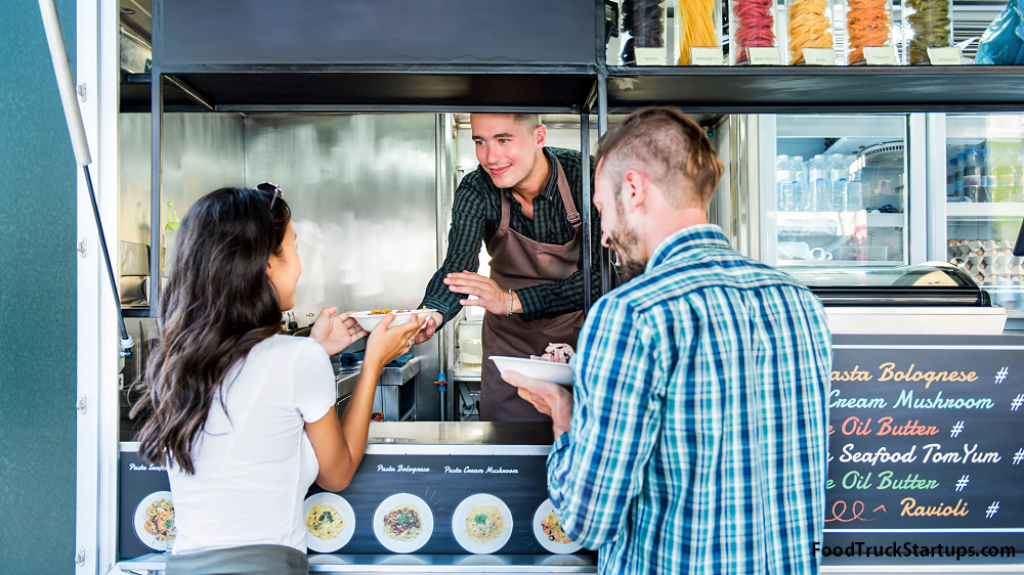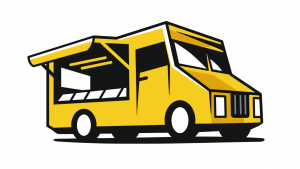How Much Does a Food Truck Cost?
Food Truck Cost

How Much Does a Food Truck Cost?
How much does a food truck cost?
If you are thinking about starting a food truck, you’re probably considering the big follow-up question: Just how much will a food truck cost?
The cost of starting a food truck isn’t cheap, but the rewards (profits and lifestyle) can certainly outnumber your investment if you run your food truck successfully.
The ultimate cost of your food truck business depends on your food truck concept, your menu, and the manner in which you plan to obtain your truck.
In today’s article, we will discuss the cost of opening a food truck. To be sure, the total cost isn’t simply the cost of a truck, but other essential elements too.
So, let’s get started!
How Much Does Your Food Truck Cost?
Building Out Your Budget
Determining the cost of starting your food truck will require a detailed budget. Stay on top of your budget early so that the costs don’t run away from you.
In the beginning, it’s okay to build out a rough outline of all your expenses. Your budget will become more evident as you move forward with your food truck business planning and decision-making.
Don’t rush or you’ll get too overwhelmed. First, start by understanding where your various costs will come from – and build out from there.
Let’s discuss that next.

Your Food Truck Startup Costs
The first general category of costs will be your food truck startup costs. These costs are those essential expenditures to get your food truck up and running and your business fully operational.
These food truck startup costs can include:
- Research and planning
- Legal and administrative
- The physical truck purchase
- Any mechanic costs
- Permit and licensing costs
- Build-out and contractor costs
- Food truck equipment costs
- Marketing (i.e., a truck marketing wrap)
- Website
Operational Costs
Your food truck operational costs are those costs associated with running the food truck on a day-to-day basis.
These food truck operational costs can include:
- Inventory
- Gas, fuel
- Rent or leasing space
- Insurance
- Labor costs
- Paper utensils, cups, plates
- Commissary cost
- Monthly principal and interest payments
Food Truck Startup Cost Elements
Food truck startup costs and operational costs can vary from one food truck to another.
Each comes with cost factors that are important to consider before seriously investing in one.
Like any other business, I strongly recommend that you first look at all the rules and regulations before making any critical decisions about your truck.
The rules and regulations certainly add to your food truck costs, but more importantly, they can come back to bite you – and add even more expenses if you have to redo your build-out, hire additional contractors, or resubmit your application.
With that said, let’s look at some food truck startup costs you will need to be aware of.
Menu Concept
Like other beverage and retail food businesses, your food truck menu will often determine your way forward.
If you intend to serve fried food, you’ll need a fryer and fire suppression system. If you serve crepes, you’ll need a grill, etc.
Your menu may also dictate the minimum space requirements. For example, stoves, fryers, grills, refrigeration, ice, and storage require minimum space.
The more extensive and elaborate the menu, the more space you’ll likely need. Consequently, the more space you need, the more it will cost, and therefore, you should plan on spending more money.
Your Food Truck Kitchen (and Equipment)
Your food truck menu will determine what equipment you need to cook and safely prepare your menu appropriately.
Remember, you need to not only buy your food truck commercial equipment, but also appropriately install it and provide a certain amount of electrical wattage and fuel (such as propane or electrical power). Often, this installation isn’t cheap. Yet, having an experienced contractor to help safely install your equipment is well worth the money.
How much should you expect to spend on a food truck?
The food truck cost range will vary depending on size, space, condition, demand, and other factors. These factors include the available supply, demand, and location.
With this in mind, let’s review some of your options in obtaining a food truck. You generally have a few options to get your food truck:
- Buying a food truck
- Buying a used food truck
- Lease or renting a food truck
Buying a new food truck
A new food truck could run you anywhere from $75,000 to $175,000. It often depends on the size and the number of bells and whistles you have, the manufacturer, and the quality of the truck.
Additionally, this cost may or may not include the build-out or big pieces of equipment, which may come separately. Further, custom-made trucks may run you additional premium costs and add anywhere from 10% to 40% to the price.
There are some obvious advantages to buying a new food truck. While you might have to work out a few kinks, you’ll know that you were the first to use all the equipment and know that everything was is installed correctly. It’s likely that you will also have a warranty by the manufacturer to fix any issues within a certain time frame.
Remember that your new truck will still need to pass a physical inspection from your health and buildings department. So, be sure that you work with the manufacturer to get everything made and up to code.
Buying a used food truck
Buying a used food truck can be a much more affordable option. Often a food truck can depreciate considerably after the first few years of being used. However, there is a recent uptick in demand for used trucks, cars, and food trucks in good condition, which may elevate used prices.
Of course, with being a used truck, the condition matters. There are plenty of used, rusted, out-of-order trucks that could be available for purchase, but they may not be worth the asking price.
You may have to invest thousands of dollars to get everything up-to-code and hygienic enough to use. If so, would it be best to invest the extra money and get a newer food truck?
Before buying the used food truck, you will understand what works and what doesn’t. Additionally, you will want to know what state and county it has operated in before.
While the food truck perfectly satisfies one county’s codes and requirements, it may not meet the requirements for another county in the same state! So be sure to check on the conditions in the counties you intend to operate in.
Lease or Renting a Food Truck
Another viable option is to rent your food truck. This would be the lowest barrier to entry and perhaps the least risky.
Leasing your food truck by the season or for a year could give you time to figure out if you want to move forward with your business. You may decide to negotiate a deal with the owner to provide a base rent and a percentage of the income or something of that nature.

What’s Next?
Budget & your funding mix
After you research and determine which option makes the most sense for you and your food truck business, you’ll need to develop your food truck startup budget.
You will want to be meticulous about the potential spending – cost out everything from your truck, new tires, alarm system, insurance, and general maintenance.
Next, you will want to develop your funding mix. Your mix will decide where you will get the money to fund your food truck.
Your food truck funding mix breaks down all the potential pools of revenue that you have to access the right among of money for your business.
Intimidated by the costs?
As you start to figure out the costs of your food truck, it’s easy to get overwhelmed. While there may be many upfront costs, there is some good news. Unlike a brick-and-mortar location where you can pay thousands per month in rent and utilities, once you pay off your truck, it’s entirely yours.
Sure, you may need to pay a rental fee for the location you decide to operate your business at. However, your truck still has the great potential to decrease your operational expenses significantly.
Conclusion
A food truck can cost significant amounts of money. However, there are various ways to get your food truck business off the ground. These include renting or leasing your truck. As well as buying a used truck. Investing in a new custom-made food truck can also be worth the costs to deliver your menu choice.
Consider our recommendation of being honest with yourself about the numbers right from the beginning. Then, by budgeting out your costs – from small to large expenditures – you’ll be in a much better situation to see the whole budget.
Finally, develop your funding mix and determine where you will get your money to fund the cost of the truck and your business as a whole.

Additional Questions:
Is it better to lease a food truck than buy one?
If you are still on the fence about going all in and investing in a food truck, then renting or leasing out a food truck may be beneficial. There is nothing wrong with leasing a truck – as long as you are comfortable with the terms.
Leasing would allow you the ability to exit the food truck industry with less risk. Additionally, it could give you the experience you need to refine your food truck concept and develop your menu, your brand, and customer base.
What are the benefits of starting a food truck?
Starting a food truck is potentially an excellent business opportunity. If you are passionate about food, sharing your recipes, or interested in switching gears on your current career choice, starting a food truck may be a good option.
We’ve written a deep-dive look into the benefits of starting a food truck business in our post, The Benefits of Starting a Food Truck.
Can I start a food truck with no experience?
Many successful food truck owners have started with no experience. However, many decided to get the knowledge to succeed in the food truck industry. The fact is that many successful food truck entrepreneurs come from all walks of life, careers, and backgrounds. However, opening a successful food truck takes work, grit, and knowledge. We encourage you to read our article, Starting a Food Truck with No Experience.






